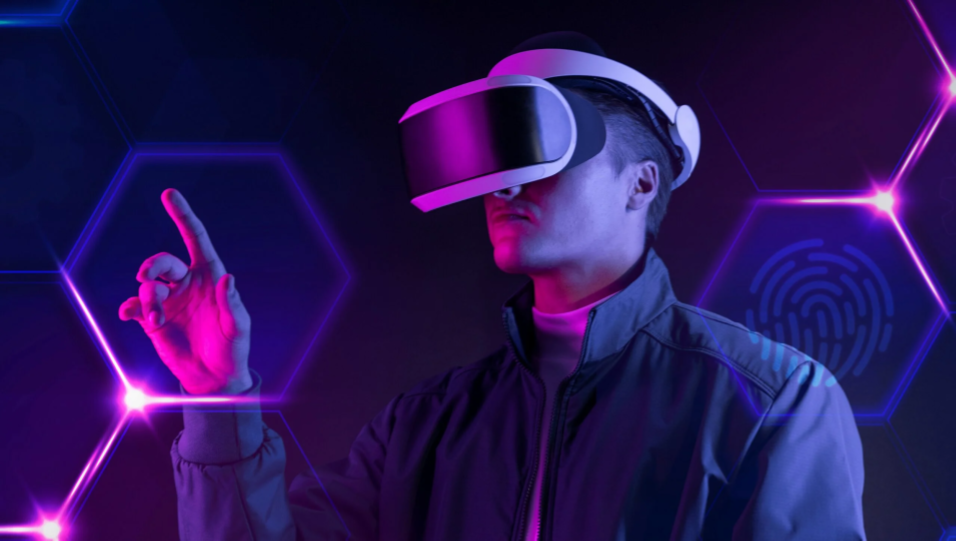Sitting on your living room couch, you slip on a set of virtual reality goggles. In an instant, you’re transported to an office filled with your coworkers.
This fully immersive virtual world is being created by Meta (previously Facebook), and UMKC computer science & electrical engineering professor Brian Hare isn’t falling for the hype.
“A lot of this strikes me as a solution in search of a problem,” Hare said. “There are certainly going to be applications for virtual and augmented reality; it’s not clear there’s much demand for what they’re providing.”
Mark Zuckerberg, CEO of Meta, believes that the so-called Metaverse will replace the mobile internet. He said it will become the new online space to hang out with friends and family, go to work, and hit the shops or even the gym.
“We’ll be able to feel present like we are right there with people no matter how far apart we actually are,” Zuckerberg said. “We’ll be able to express ourselves in new joyful, completely immersive ways.”
Professor Hare remains skeptical about how likely it is to be used, however.
“If it’s just some cool whiz-bang technology, but doesn’t let users do things they couldn’t otherwise, it’s hard to see it becoming widely adopted,” Hare said. “It’s not at all clear that we need a fully immersive 3D environment for the monthly staff meeting.”
Hare said that in terms of new technology, the young tend to pick it up and accept it as a normal part of the world, whereas older generations tend to only adopt technology that serves an obvious purpose in their lives. For example, many grandparents will use FaceTime and Facebook to see their grandchildren. However, downloading TikTok is far less likely, as it does not serve a direct need.
But the lack of application may not be a concern for Meta, according to Hare. He said the Meta business model has and will continue to be based on the collection of mass amounts of user data.
“The drive here seems to be to keep users as embedded in Meta as much of the time as possible,” Hare said. “Which means, of course, [users are] providing a steady stream of data and can be fed a steady stream of advertising, custom-tailored to what they’re most likely to buy and what will keep them engaged on the platform even longer.”
Companies need a business case to adopt new technology. When COVID-19 forced people to work remotely, services like Zoom were necessary to get work and meetings completed from home. The case has “absolutely not been made” for a work environment like the Metaverse, according to Hare.
Though Zuckerberg said that screens are simply not capable of conveying emotion and connection like an immersive virtual world can, Hare urges those considering participation in the Metaverse to keep some questions in mind: “Who’s doing this, who’s paying for it, and why?”
jmt9w6@mail.umkc.edu









Lawrence Brooks • Nov 10, 2021 at 1:04 pm
Great story Joeli!!